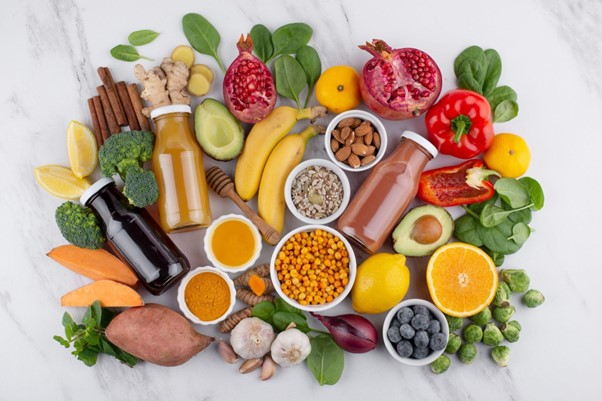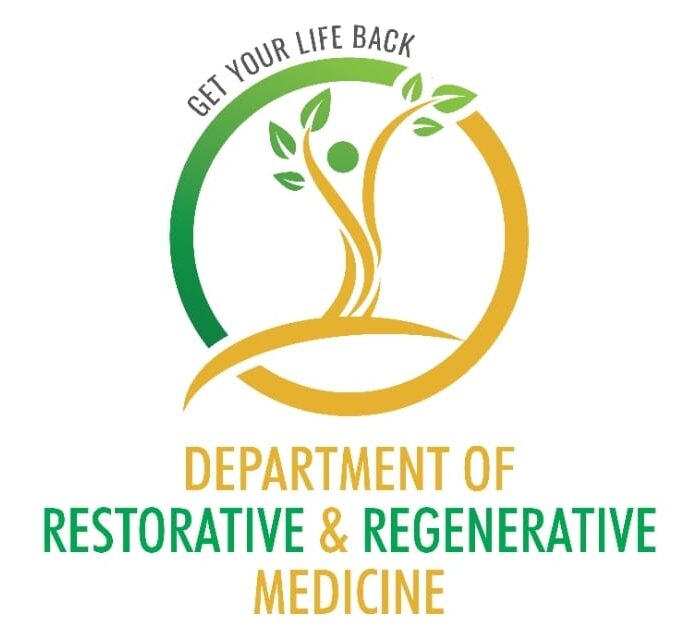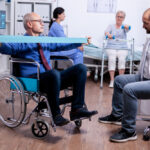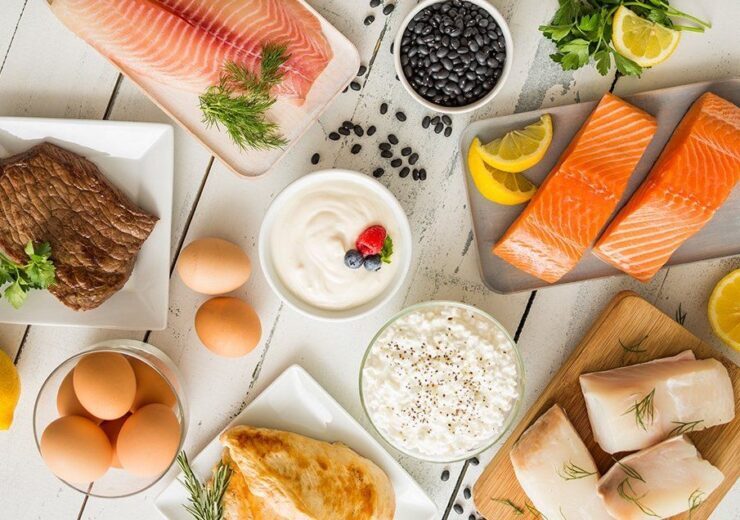The Anti-Inflammatory Diet: A Key to Orthobiologics Healing

Overview – Inflammation and Its Impact on Orthobiologics-Based Treatment
When it comes to healing our bodies, inflammation is a significant factor. Inflammation is our body’s natural response to injuries or illnesses, but when it becomes chronic, it can hinder the healing process. This is where orthobiologics come into play. Orthobiologics are treatments that use substances found naturally in our bodies to promote healing. In this blog, we will explore how the anti-inflammatory diet can support orthobiologics-based treatment and enhance the healing process.
The Role of Diet in Orthobiologics Treatment
Diet matters for orthobiologics treatment. What you eat can help or hurt the healing process.Good food, like colorful fruits and veggies, whole grains, and nuts, can boost the power of orthobiologics. But, too much sugar, processed stuff, and bad fats can slow it down. Omega-3 fatty acids after orthobiologics treatment in fish and seeds help your joints stay happy. Foods rich in antioxidants, like berries and leafy greens, fight off inflammation. So, choosing the right foods can be like giving a turbo boost to your healing process when you use orthobiologics.
How Diet Affects Healing with Orthobiologics
The food you eat affects how well your body heals with orthobiologics. Imagine it like having the right tools for a job. Eating healthy, like fruits and vegetables in orthobiologics healing, and nuts, makes it easier for orthobiologics to do their work. But if you eat too much sugary stuff, processed foods, or bad fats, it can make healing harder. Omega-3 fatty acids from things like fish and seeds help your joints. Foods with antioxidants, like berries and leafy greens, can reduce swelling. So, choosing the right foods can either help or slow down the healing process when using orthobiologics.
Harnessing the Power of Anti-Inflammatory Foods
Anti-inflammatory foods are like superheroes for our bodies. They help reduce chronic inflammation, making it easier for orthobiologics to do their job. Some of these amazing foods include:
-
Fruits and Vegetables:
Packed with vitamins, minerals, and antioxidants, fruits and vegetables are essential for reducing inflammation. Berries, leafy greens for orthobiologics, and colorful veggies are excellent choices.
-
Nuts and Seeds:
Almonds, walnuts, flaxseeds, and chia seeds are loaded with anti-inflammatory properties and healthy fats.
-
Herbs and spices:
Turmeric, ginger, and garlic are known for their anti-inflammatory powers. They can completely alter the flavour of your dishes if you include them.
-
Green Tea:
Green tea contains antioxidants called catechins, which can help combat inflammation.
By incorporating these foods into your diet, you can create an environment that supports orthobiologics healing.
The Anti-Inflammatory Diet for Orthobiologics Healing
It’s all about eating the right foods to help your body heal better. The key is to focus on whole, plant-based foods, like colorful fruits and veggies, whole grains in orthobiologics treatment, and nuts. These foods create a friendly environment for orthobiologics to work their magic. But, you should also stay away from things that can cause inflammation, like too much sugar, processed foods, and bad fats. Omega-3 fatty acids from fish and seeds are great for your joints, and foods with antioxidants, such as berries and leafy greens, can help fight inflammation. So, your diet can be your sidekick in the journey of orthobiologics healing.
Emphasizing Whole, Plant-Based Foods
The doctors for orthobiologics treatment in Mumbai at Jaslok Hospital suggest that a diet rich in whole, plant-based foods is the cornerstone of an anti-inflammatory diet for orthobiologics healing. Here’s how you can do it:
-
Nature’s Goodies:
Whole, plant-based foods are those that come straight from nature without a lot of processing. They include fruits, vegetables, whole grains, nuts, and seeds.
-
Nutrient Powerhouse:
These foods are packed with essential vitamins, minerals, and fiber that are good for your body.
-
Support Healing:
Whole, plant-based foods create a favorable environment for your body’s natural healing process and work well with orthobiologics.
-
Colorful Variety:
Aim to have a rainbow of fruits and vegetables on your plate. Different colors mean different nutrients that are all beneficial.
-
Lean on Plants:
Use plant-based sources for protein, like beans, lentils, and chickpeas, which are both healthy and support healing.
-
Healthy Fats:
Incorporate sources of healthy fats like avocados, olive oil, and nuts, as they’re good for your body.
-
Whole Grains:
Choose whole grains in orthobiologics treatment like brown rice and quinoa over refined grains for added fiber and nutrients.
Reducing Inflammatory Triggers: Sugar, Processed Foods, and Saturated Fats
To support orthobiologics healing as per the suggestion of our doctors for orthobiologics treatment in Mumbai, it’s important to cut down on foods that can trigger inflammation. Here are some points to watch out for:
-
Sugar:
Excessive sugar consumption can lead to chronic inflammation. Try to limit your intake of sugary snacks, sodas, and desserts.
-
Processed Foods:
Processed foods are often packed with additives, preservatives, and unhealthy fats that can contribute to inflammation. Opt for whole foods whenever possible.
-
Saturated Fats:
High amounts of saturated fats found in red meat, butter, and fried foods can increase inflammation. Choose Lean proteins for musculoskeletal repair sources and use healthier cooking methods.
Omega-3 Fatty Acids for Joint Health
As per our top experts at the best orthobiologics treatment clinic in Mumbai, Omega-3 fatty acids are superheroes for joint health. They have anti-inflammatory properties that can help reduce pain and swelling.
-
Joint Lubrication:
Omega-3 fatty acids, found in fatty fish like salmon and in seeds such as flax and chia, help keep joints well-lubricated. This lubrication reduces friction and eases joint movement, promoting overall joint health.
-
Inflammation Control:
Omega-3s have anti-inflammatory properties that can alleviate joint pain and swelling. By reducing inflammation, they contribute to improved joint comfort and mobility.
-
Cartilage Support:
These fatty acids also support the integrity of joint cartilage, the protective cushioning in your joints. By maintaining cartilage health, Omega-3s play a vital role in preserving and enhancing joint function.
By including these sources of omega-3 fatty acids in your diet, you can support joint health and enhance the effectiveness of orthobiologics treatments.
Antioxidant-Rich Foods for Inflammation
The experts at our best orthobiologics treatment clinic in Mumbai say that Antioxidants are like the body’s defense system against inflammation. They help combat free radicals and reduce oxidative stress. Here are some antioxidant-rich foods to add to your anti-inflammatory diet:
-
Berries:
Antioxidants abound in raspberries, strawberries, and blueberries. They can be enjoyed on their own or added to cereals and smoothies.
-
Dark Leafy Greens:
Spinach, kale, and Swiss chard are packed with antioxidants and other nutrients that fight inflammation.
-
Nuts and Seeds:
As mentioned earlier, nuts and seeds are not only a source of healthy fats but also antioxidants.
-
Tea:
Green tea, as well as black and white teas, contain antioxidants known as polyphenols that can help reduce inflammation.
-
Brightly Colored Vegetables:
Carrots, bell peppers, and sweet potatoes are rich in antioxidants like beta-carotene.
By including these antioxidant-rich foods in your diet, you can create a strong defense against inflammation, supporting orthobiologics healing.
Discover the impact of isometric exercises on supporting PRP treatment outcomes in our blog post: Isometric Exercises for Supporting PRP Treatment Outcomes
The anti-inflammatory diet emerges as a potent ally in optimizing orthobiologics-based healing. By emphasizing nutrient-rich, plant-based foods, avoiding inflammatory triggers, and incorporating omega-3 fatty acids and antioxidants, individuals can actively enhance the efficacy of orthobiologics treatments. This holistic approach not only supports the body’s natural healing processes but also underscores the vital role of nutrition in fostering a conducive environment for orthobiologics to work effectively.





